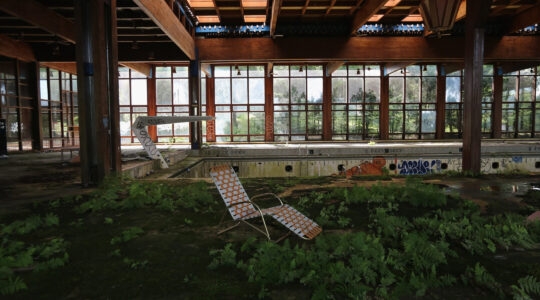In March 2010, as part of my Zionist group’s annual week-long “Israel Symposium,” I visited Ramallah, the West Bank capital of the Palestinian Authority. As our bus wended its way into its well-ordered main streets, we were greeted by the sight of a heavily-armed force in helmets and body armor. Could they possibly have been assembled on our account, we wondered? No, as was later explained, the high-profile visitor of the day was “Lula”— Luiz Inácio Lula da Silva — then the President of Brazil.
The paramilitary troops we saw that day were members of the reformed Palestinian Authority security forces, whose restructuring and training was being overseen by United States Lt. General Keith Dayton, the longest serving officer in the position of U.S. Security Coordinator for Israel and the Palestinian Authority, from December 2005 until October 2010. This is an office that’s run by the State Department rather than the Pentagon, with about 45 staff and a couple of dozen other personnel working for a private contractor, headquartered at the U.S. Consulate in Jerusalem. Its current head is Vice Admiral Paul Bushong, with a new appointee confirmed by the Senate to take charge in January.
Gen. Dayton is well-known to Mideast policy wonks for having succeeded in creating order out of the chaos of the competing Palestinian security branches that had existed under the PA leadership of Yasir Arafat and following the Second Intifada. Under U.S. tutelage, these better-coordinated and disciplined forces have cooperated well with Israel against terrorist elements.
Yet advocates for Palestinian rights sometimes mock the USSC for turning PA forces into “defense subcontractors” for Israel, and for suppressing dissent among Palestinians against PA policies. Maintaining this role has been bitterly called into question most recently with the death of PA cabinet minister Ziad Abu Ein. PA President Mahmoud Abbas appears to be backing away from statements that the Palestinians will completely end its security coordination with Israel, but this question is far from settled.
Hedging against public fallout from the possible collapse of this relationship, some Israeli security officials and analysts downplay the importance of Palestinian-Israeli security cooperation.
The Palestinians would lose more than Israel if their cooperation ended, contended Avital Leibovich, who left active service as an IDF lieutenant colonel and its media spokesperson in June, in an e-mail exchange. “Israel's intel capabilities are far more advanced than the Palestinians' and providing them with some of this Intel, actually helps them to sustain their governance in the West Bank," wrote Leibovich, who is now the American Jewish Committee’s Israel director.
This was echoed by Defense Minister Moshe Ya’alon, stating that such a change would “hurt them more than us,” and that Israel could “manage without it.”
Israeli posturing aside, we’d do well to remember that the Second Intifada grew from a series of disturbances and attacks that were much more lethal for Palestinians than Israelis at its outset in 2000, into a de facto war that took nearly a thousand civilian lives in Israel because their previous security coordination broke down completely, and PA forces either turned neutral or joined the Intifada.
Indeed, the head of Israel’s Military Planning Directorate, Major General Nimrod Shefer, stated that “security coordination [is] a very important part of security for both Israel and the Palestinians.”
Writing in The New York Review of Books, Nathan Thrall reported that acting together, Israeli and PA forces have “crushed Hamas” in the West Bank and “largely disbanded” other terror threats.
Today, with the collapse of the Kerry round of negotiations, the Gaza war and the death of Abu Ein, it’s an open question how long these forces will continue to police the status quo and guard against fellow Palestinians in the absence of a reasonable time horizon for Palestinian statehood.
Ralph Seliger is a long-time editor and writer, mostly on Israeli and Jewish political and cultural issues, from a left-Zionist perspective. He is currently administrator of the Partners for Progressive Israel Blog.
The New York Jewish Week brings you the stories behind the headlines, keeping you connected to Jewish life in New York. Help sustain the reporting you trust by donating today.




